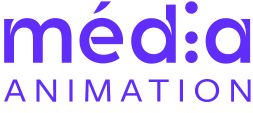In it, you will find suggestions for collective activities on how to deal with the use of digital media and screens in the family environment. Each activity has a specific goal. While the activities are not interdependent, they complement each other. Feel free to choose the activities depending on your public and aspects to discuss.
Our aim is to reach out to every parent, including those who are linguistically vulnerable, illiterate or socially disadvantaged. Unlike existing resources—brochures, information websites, etc.—this tool offers easy and fun activities that don’t require reading or writing skills but rely on discussion and debate. They are designed
to help everyone reflect on media uses in their homes and take a step back from their own practices.
Let’s not forget that adults are still children’s number one role models!
The genesis
This outreach tool was born out of the realisation that our regular but isolated conferences and events could not reach all parents, and even less so those in vulnerable situations. Our traditional and resource-based activities require parents to take a proactive approach: looking for the leaflet online, going to a school or cultural centre in the evening, understanding our long articles. If the vast majority of parents can’t reach or understand (let alone decipher) our approach, then media literacy and, more specifically, digital parenting awareness campaigns need to reach out to them! So how do we do it?
For use with adult parents
This tool is designed to be used by any adult support worker in social inclusion areas: neighbourhood centres, health promotion areas, parents’ associations, social outreach initiatives, integration pathways or FLE (French as a foreign language) programmes, etc.
Our aim is to reach out to all parents, including those who are linguistically vulnerable, illiterate or socio-culturally disadvantaged. That’s why this tool offers simple, fun activities that don’t require reading or writing, but rather discussion and debate.
The content of this tool was developed through numerous meetings with parents in the form of workshops and training sessions for social inclusion professionals. The activities have been tested by more than 130 participants and commented on, both in terms of the relevance of the themes and the methodologies, which are intended to be inclusive.
The 7 activities in detail
- Family Portrait
By producing a portrait of their family and associating the devices used with specific household members, participants will become aware of all the digital practices in their home. This is a good starting point for further reflection on the overall management of such uses at home rather than focusing on only one type of practice. - Online, offline: What’s the difference?
This activity proposes a metaphor between activities carried out in public and society and online activities. The participants are encouraged to draw parallels between different life habits and physical services (in public / society), and online practices. The activity then compares behaviours, norms and rules in force in the first or second context. - The picto rules
As parents, which rules and guidelines would the participants suggest for other families? This activity is designed to foster discussions regarding problematic situations involving digital media or screens by drawing up a kind of family highway code for screens. - Bingo lotto of shared practices
This activity is inspired from bingo, the only difference is that here, the grid is not filled with numbers but with online media practices! Does my teenager play video games? What do I know about my child’s communication practices? Is it something we share? - Different ages, different needs
To what extent do media practices positively or negatively impact the psychosocial development of our children and teenagers? This activity aims to discuss this issue by associating a series of psychosocial needs in childhood and adolescence with an age group and media practices.
Obtain the materials
The English-language version of the tool is only available in digital format, free to download and print. Please refer to the instructions below to find out how many copies of each material you need to print out to ensure the best possible collaboration within your group (designed for 4 to 12 participants).




